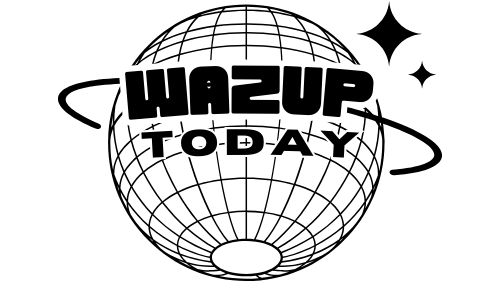
The Benefits of Breastfeeding: Why I Chose to Breastfeed My Children
Breastfeeding is a topic that has been widely discussed for years. Some mothers swear by it, while others opt for formula feeding. As a mother who has chosen to breastfeed her children, I can attest to the numerous benefits it offers. Not only is it a bonding experience between mother and baby, but it also provides essential nutrients, antibodies, and hormones that help protect babies from illnesses and diseases. Breast milk is also easily digestible, which means babies have less chance of developing digestive problems. Additionally, breastfeeding has been found to reduce the risk of certain types of cancer and can even help mothers lose weight. In this post, I will be sharing my personal experience with breastfeeding, the benefits it has provided for my children and myself, and why I believe it is a good option for many mothers.
Why I Decided to Breastfeed My Children
When I became pregnant with my first child, I was faced with many decisions. One of the biggest decisions was whether or not to breastfeed my baby. After researching the benefits of breastfeeding, the choice became clear to me. Breast milk is nature’s perfect food, providing all the nutrients my baby needed to grow and develop in those early months. It also contains antibodies and immune-boosting properties that help protect my baby from illnesses and infections. But the benefits of breastfeeding go beyond just physical health. Breastfeeding also promotes bonding between mother and baby, providing a unique closeness and connection that can last a lifetime. It’s also convenient, always available and at the right temperature.
Of course, breastfeeding wasn’t easy for me. It can be challenging and requires dedication and support. That’s why I sought out resources and a support system to help me along the way. The benefits for me and my baby were worth it. As a mother, I wanted to give my child the best start in life, and for me, that meant choosing to breastfeed. In this blog post, I’ll explore the many benefits of breastfeeding and why I believe it’s a great choice for any mother and baby.
The Nutritional Benefits of Breastmilk
Breastmilk is often referred to as “liquid gold” because of its numerous nutritional benefits. Breastmilk is the perfect food for a baby because it contains all the necessary nutrients in the right proportions, including proteins, fats, carbohydrates, vitamins, and minerals. It is also easily digested and absorbed by the baby’s immature digestive system.
Breastmilk contains antibodies that help protect the baby from infections, illnesses, and diseases. These antibodies are not found in formula milk, which means that formula-fed babies are more prone to infections and illnesses. Breastmilk also contains hormones that help regulate the baby’s body functions and promote healthy growth and development.
Breastmilk is always fresh and at the right temperature, which means that it is convenient for the mother and does not require any preparation or sterilization. It is also free, which makes it a cost-effective option for families, especially those on a tight budget.
In summary, breastmilk provides all the necessary nutrients for a baby’s healthy growth and development, protects the baby from infections and illnesses, and has health benefits for the mother. These benefits make breastfeeding a highly recommended option for mothers who are able to breastfeed their babies.
The Immune System Benefits of Breastfeeding
Breast milk is often referred to as “liquid gold” for a reason. It is packed with all the necessary nutrients, vitamins, and minerals that a growing baby need. However, breast milk is not just a source of nutrition. It is also full of antibodies, which help to protect your baby from infections and illnesses. Breast milk is rich in immunoglobulin A (IgA), an antibody that lines the baby’s nose, throat, and digestive tract. This helps to create a protective barrier against viruses and bacteria, reducing the chances of your baby getting sick. Breast milk also contains white blood cells, which help to fight infection. Breastfeeding also helps to reduce the risk of certain infections and illnesses for both mother and baby. For example, breastfeeding has been shown to reduce the risk of ear infections, respiratory infections, and gastrointestinal infections in babies. It can also help to reduce the risk of certain types of cancer, including breast cancer and ovarian cancer, in mothers.
Breastfeeding is not just beneficial for your baby’s immune system. It also has numerous benefits for your own health and well-being. It can help to lower your risk of postpartum depression, reduce your risk of certain types of cancer, and help you to lose weight after pregnancy.
In summary, the immune system benefits of breastfeeding are just one of the many reasons why it is such an important and valuable experience for both mother and baby. By choosing to breastfeed, I believe that I am giving my babies the best possible start in life and providing them with the protection and nourishment they need to thrive.
Breastfeeding and the Bonding Experience
Breastfeeding is more than just feeding your baby. It’s a special bonding experience between a mother and her child that has physical, emotional, and psychological benefits for both. When you breastfeed, your baby is held close to your body, which promotes closeness and affection. The skin-to-skin contact triggers the release of hormones like oxytocin, which helps to strengthen the bond between mother and baby. Additionally, breastfeeding helps to regulate a baby’s breathing, heart rate, and temperature, making them feel secure and safe.
The bonding experience of breastfeeding is not just limited to the mother and baby. Partners and family members can also be involved in the experience. For example, partners can help with positioning and supporting the baby during breastfeeding, which can help them feel included and develop their own bond with the baby. Breastfeeding can also provide a sense of community and support for mothers, as they connect with other breastfeeding mothers and share their experiences.
The Economic Benefits of Breastfeeding
Aside from the health benefits, breastfeeding also has economic advantages that are worth considering. Formula feeding can be expensive, and costs can add up quickly. According to a study by the USDA, formula feeding can cost families up to $1,500 or more each year, depending on the brand and type of formula used. In contrast, breastfeeding is essentially free, aside from the cost of nursing bras, breast pads, and other accessories. These costs are relatively minimal compared to the ongoing cost of formula feeding. Furthermore, with breastfeeding, there are no worries about running out of formula or needing to purchase additional supplies while on the go. Breastmilk is always available and ready to go, no matter where you are. Additionally, breastfeeding can lead to fewer medical expenses due to the health benefits for both mom and baby. Breastfed babies tend to have fewer ear infections, respiratory infections, and allergies, which means fewer trips to the doctor’s office and lower medical bills. Overall, breastfeeding helped us save money while providing numerous health benefits for both mom and baby.
The Environmental Benefits of Breastfeeding
Breastfeeding not only provides numerous health benefits for both the mother and the baby, but it also has environmental benefits. By choosing to breastfeed, you can help reduce your carbon footprint by avoiding the use of formula, bottles, and other related products that require energy and resources to manufacture and transport.
Formula and bottle production require the use of plastics, which are not biodegradable and contribute to landfill waste. Additionally, the production of formula requires water and energy resources, which can have negative impacts on the environment.
Breast milk is a renewable resource and does not require any additional energy or resources to produce. It also does not contribute to waste or pollution. Breastfeeding can also reduce the need for transportation of formula and related products, which can further reduce your carbon footprint.
Choosing to breastfeed can have a positive impact on the environment, but it’s also important to consider other factors such as your personal lifestyle and circumstances. Regardless of your decision, it’s important to make an informed choice that works best for you and your baby.
The Challenges Associated with Breastfeeding
Breastfeeding is a natural and beneficial way to feed your baby, but it doesn’t come without its challenges. Some women might experience difficulty with latching, sore nipples, engorgement, or low milk supply. These challenges can be disheartening and lead to feelings of inadequacy or guilt. However, it’s important to remember that every woman’s breastfeeding journey is unique and there’s no shame in seeking help from a lactation consultant or support group.
It’s also important to note that breastfeeding can be time-consuming and require a lot of dedication. There may be times when you feel like you’re constantly feeding your baby or pumping milk, which can interfere with your daily routine. It’s important to make time for self-care and seek support from your partner or loved ones during this time.
Another challenge associated with breastfeeding is the stigma surrounding it. Despite the numerous benefits of breastfeeding, some people still view it as inappropriate or uncomfortable. It’s important for society to become more accepting of breastfeeding in public and for workplaces to provide accommodations for nursing mothers.
While the challenges of breastfeeding can be daunting, they shouldn’t deter women from choosing to breastfeed. With the right support and resources, many women are able to overcome these challenges and enjoy a fulfilling breastfeeding experience.
The Immense Value of Breastfeeding
It is clear that the benefits of breastfeeding are immense, both for the baby and the mother. Breast milk provides the ideal nutrition for infants, with the perfect balance of nutrients that cannot be replicated by any formula. It helps protect against infections, allergies, and illnesses, and has been shown to reduce the risk of sudden infant death syndrome (SIDS), obesity, and chronic diseases later in life.
Breastfeeding also has numerous benefits for the mother, including helping to reduce the risk of breast and ovarian cancer, promoting bonding between mother and baby, and aiding in postpartum weight loss.
While breastfeeding may not always be possible or practical for every mother and baby, it is important to understand the value and benefits of breastfeeding and make an informed decision regarding infant feeding.
As a mother who has chosen to breastfeed my children, I can attest to the many benefits that I have seen firsthand. From the special bond that developed between me and my babies to the improved health outcomes that they have experienced, I am grateful for the opportunity to have breastfed and encourage other mothers to consider this option if possible.
Breastfeeding is a personal choice that every mother has to make on her own. I shared my personal experience and discussed some of the benefits of breastfeeding. I hope that this article has been helpful to all new moms out there who are trying to decide what is best for their babies. Remember, there is no right or wrong answer, and what works for one mother may not work for another. The most important thing is that you find what works best for you and your baby.



